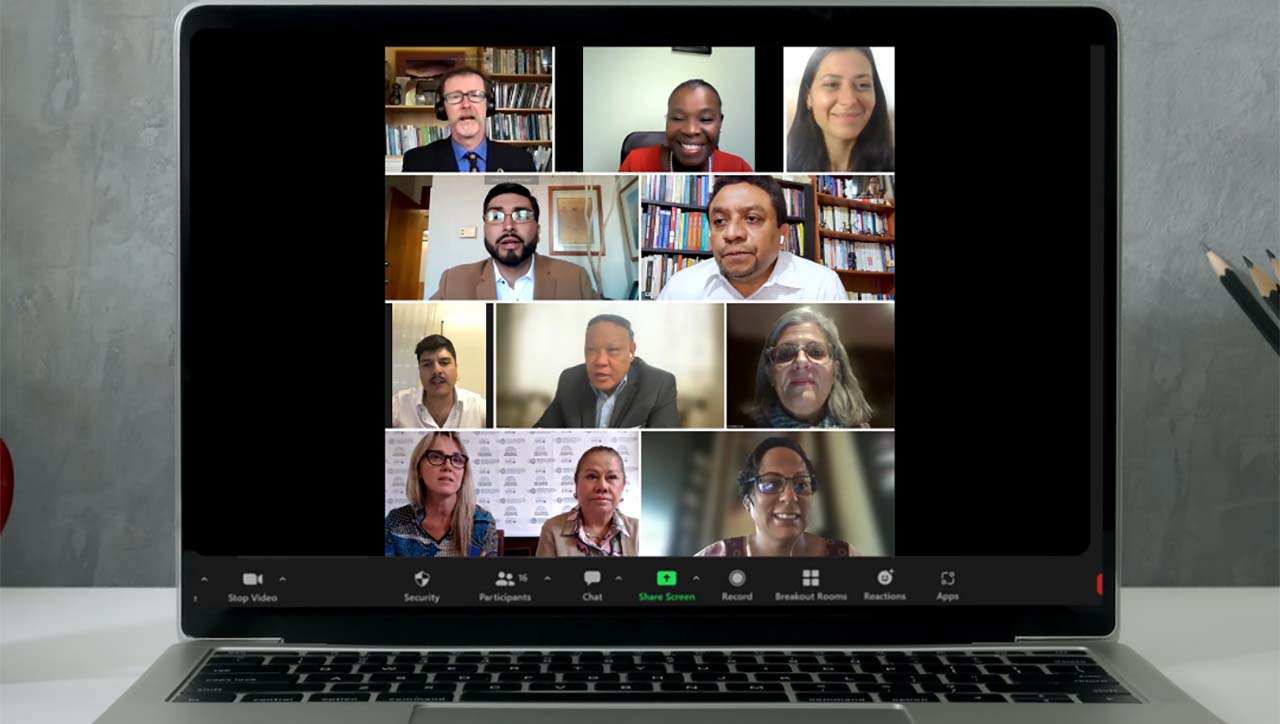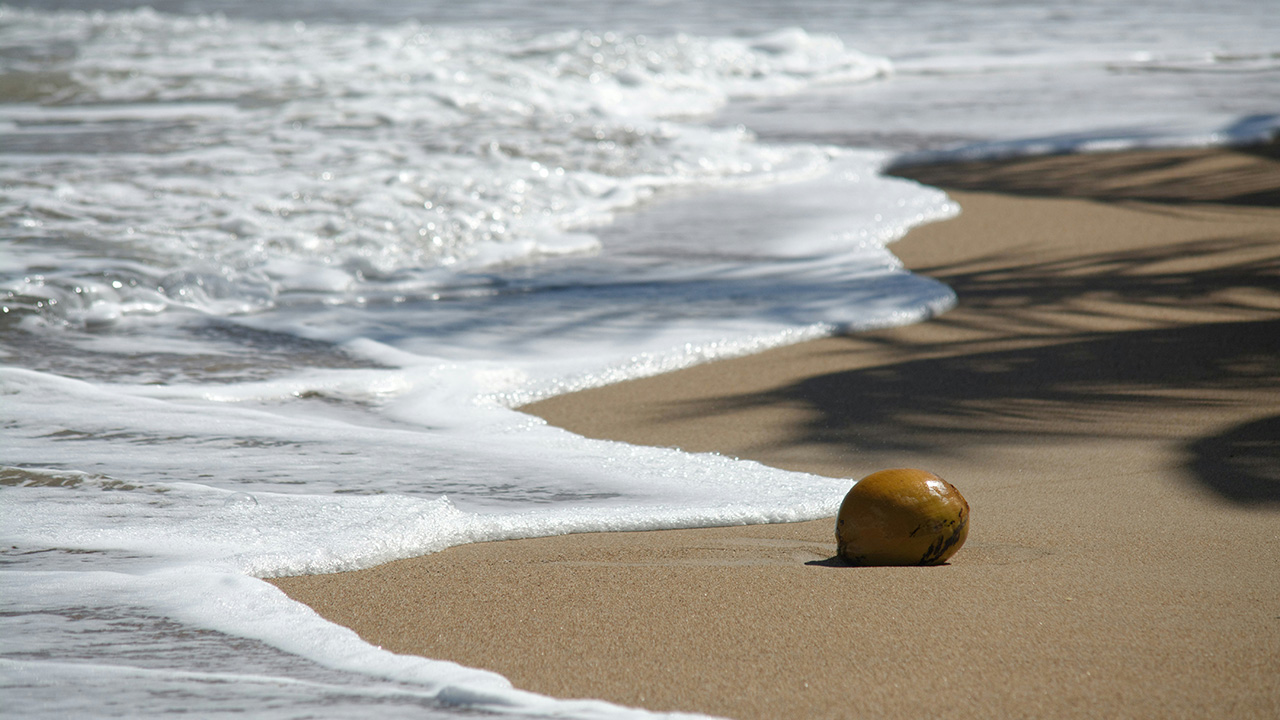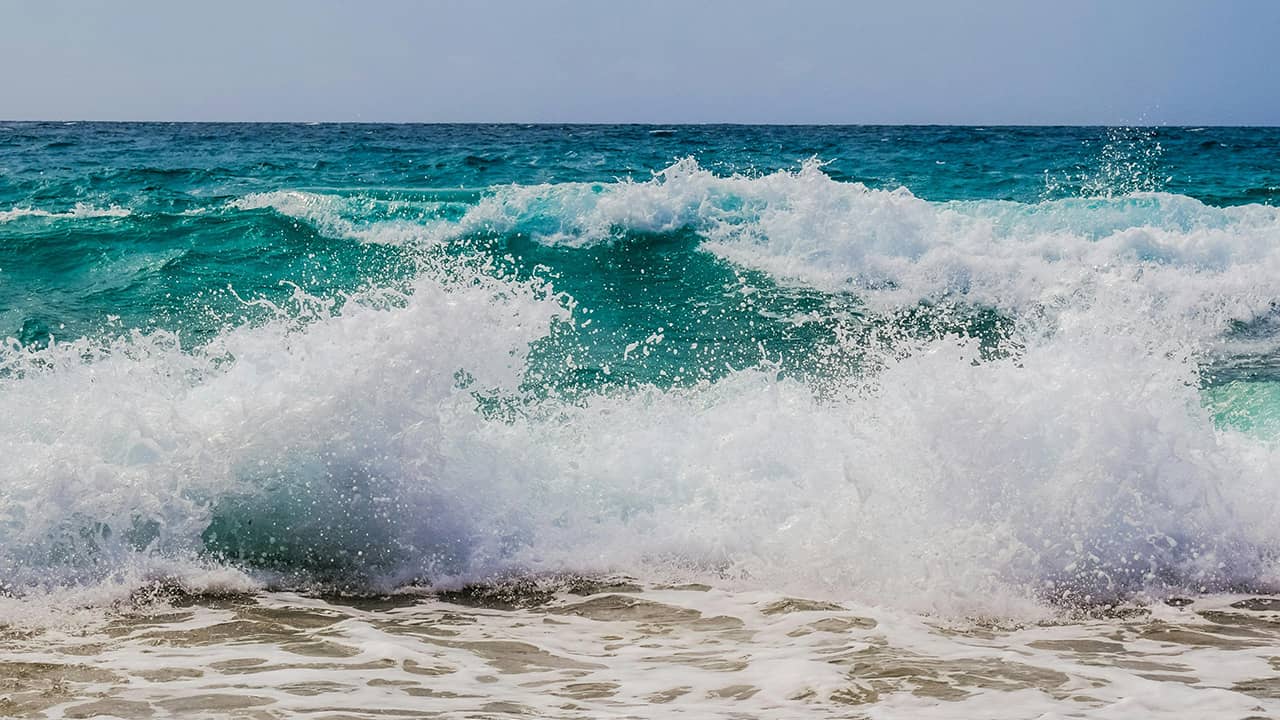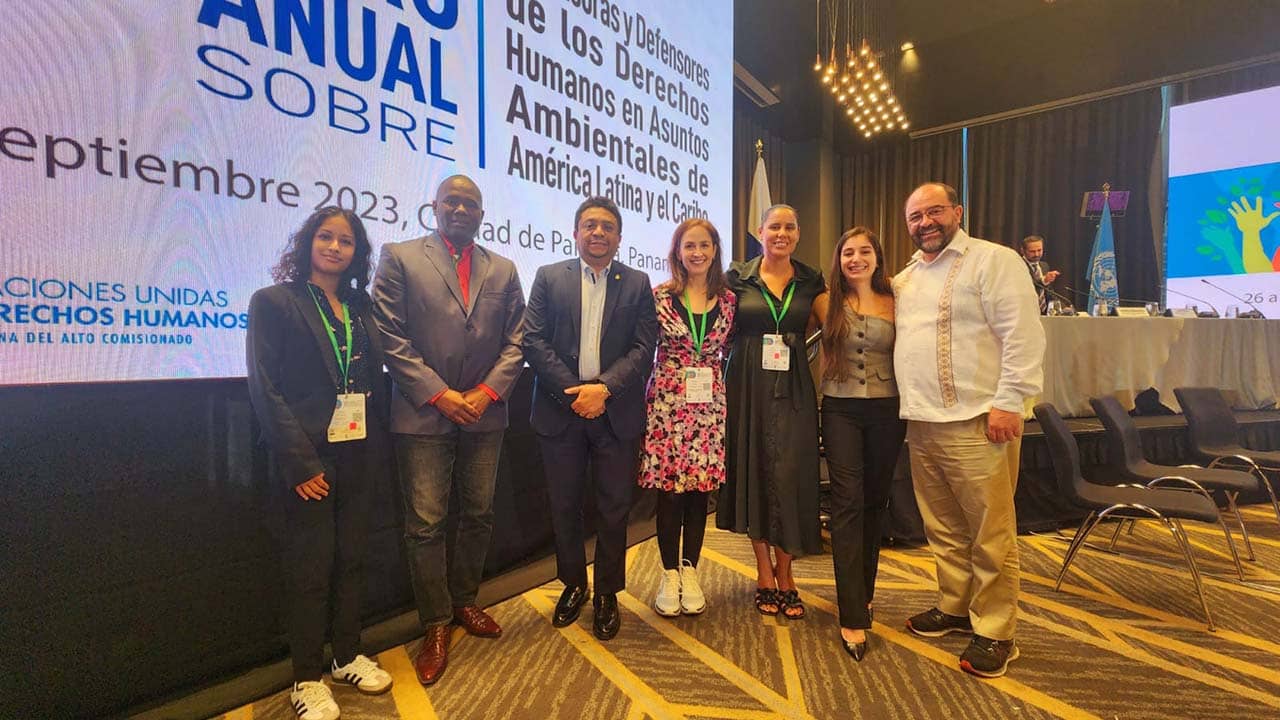
On Wednesday, 19th April 2023, Parliamentarians for Global Action (PGA), in collaboration with Fundación Sustentabilidad Sin Fronteras and Uno.Cinco, hosted the official side event to the Second meeting of the Conference of the Parties (COP2) to the Escazú Agreement: Empowering Parliamentarians as Champions for the Escazú Agreement. The side event brought parliamentarians from Latin America and the Caribbean together to share experiences and good practices to address legislative challenges relating to the Escazú Agreement, highlighting in particular the Agreement’s usefulness to recognize, protect, and promote rights of all human rights defenders in environmental matters.
Opening the event, Hon. Valerie Woods, MP (Belize), Speaker of the House of Representatives and PGA Board Member and Convenor of the PGA Climate Action Campaign, welcomed all participants to the timely exchange amongst parliamentarians aimed at identifying points to facilitate the effective implementation of the Escazú Agreement. These points – particularly related to the harmonization of the rights to access information, public participation, and justice in environmental matters – will inform the development of PGA’s Toolkit for Parliamentarians on the Escazú Agreement with a focus on the Caribbean, to be published in 2023.
Co-organizer, Ms. Micaela Tomasoni, Education and Awareness Programs Manager at Sustentabilidad sin Fronteras, noted the importance of increased cooperation throughout Latin America and the Caribbean towards the effective implementation of this unique regional tool to address the climate crisis and ensure the rights protected through the Escazú Agreement.
In his Keynote Address, Dr. David Boyd, UN Special Rapporteur on Human Rights and the Environment, underscored the impact of the Escazú Agreement for the realization of the human right to a clean, healthy and sustainable environment, which was adopted by the UN General Assembly in July 2022 (76/300). The groundbreaking Agreement not only requires countries to guarantee peoples’ right to a healthy environment through its tools to protect the rights of access to information, participation, and justice in environmental matters (Article 4), but also requires countries to protect human rights defenders in environmental matters, of which many are women, indigenous and afro-descendant peoples (Article 9). This robust tool, however, faces two challenges as outlined by Dr. Boyd: the need for more countries to ratify the Agreement, and the critical need for increased resources to support the effective implementation of the Escazú Agreement.
Following Dr. Boyd’s Keynote Address, Ms. Nicole Leotaud, Executive Director of Caribbean Natural Resources Institute (CANARI) and Elected Representative of the Public for the Escazú Agreement, provided an overview of the challenges and opportunities relating to the implementation of the Agreement from a Caribbean perspective. In particular, Ms. Leotaud highlighted the need to strengthen national institutional frameworks to enable effective access to the access rights secured through the Agreement, and the need to increase awareness and capacity amongst civil society to engage with these rights.
Beginning the panel discussion amongst parliamentarians, Dip. Luis Malla Valenzuela (Chile), Member of the Committee on Foreign Relations, Interparliamentary Affairs and Latin American Integration, reflected on his own resource abundant constituency where thousands of families are navigating the lasting impacts of environmental pollution. Dip. Malla emphasized the magnitude of the Escazú Agreement’s impact, referencing initiatives proposed in the Chamber of Deputies on the development of a new bill in consultation with civil society in Chile to protect the rights of human rights defenders of the environment.
From Argentina, Sen. Gladys González (Argentina), President of the Committee on Environment and Sustainable Development, and Dip. Graciela Camaño (Argentina), Member of the Committee on Natural Resources and Conservation of the Human Environment, each shared their perspective on the implementation process from the Senate and the Chamber of Deputies of Argentina, together calling for increased cooperation for the protection of human rights in environmental matters. Sen. González emphasized the importance of early and accessible mechanisms for civil society to formalize participatory consultations, ensuring local ownership and utility of the rights granted through the Agreement. Dip. Camaño highlighted Argentina’s robust legislative history relating to access to information and participation, noting there is still work to be done in order to operationalize these human rights to the high level of specificity provided in the Escazú Agreement.
Dip. Ramón Barrios (Honduras), Chair of the Committee on Legislation and Constitutional Affairs, underscored the particular importance of this Agreement for Honduras, which has remained within the five most dangerous countries in the world for human rights defenders of the environment. Dip. Barrios reaffirmed his commitment for Honduras to ratify the Escazú Agreement, noting its widespread benefits through the reduction of socio-environmental conflicts, strengthening efforts to address the climate crisis, reduction of environmental vulnerability, bolstering investment opportunities.
Hon. David Lee (Trinidad and Tobago), Opposition Chief Whip, reiterated the life-saving capabilities that full implementation of the Escazú Agreement can have in his country and the Caribbean region through its protection of rights of access to information, justice, and participation in environmental matters. Hon. Lee emphasized that environmental rights are akin to human rights, and parliamentarians therefore have an obligation to remain informed and to take action for the realization of these human rights.
Closing the panel discussion amongst parliamentarians, Sen. Sophia Frazer-Binns (Jamaica), Shadow Minister of Land, Environment and Climate Change, noted the various ways in which ratification and implementation of the Escazú Agreement would reinforce principles already enshrined in Jamaica’s Constitution – Jamaica’s Bill of Rights guarantees the human right to a healthy environment – through implementation of the Agreement’s access rights in environmental matters. Sen. Frazer-Binns highlighted the particular need for increased accessibility to both information and public consultations in environmental matters.
In his concluding remarks, Mr. Erick Astorga, Climate Empowerment Action Coordinator at Uno.Cinco emphasized the important role of civil society in the effective implementation of the Agreement, and the need for cooperation throughout Latin America and the Caribbean to ensure the protection of human rights defenders in environmental matters.
During her closing remarks, Speaker Woods recognized the fruitful exchange amongst parliamentarians, noting the diverse representation between countries sharing lessons learnt, countries navigating implementation and between those countries who have recognized the Agreement’s importance to those yet to ratify. Speaker Woods highlighted the technical support and resources provided by PGA for parliamentarians, of particular relevance, the Factsheet for Parliamentarians: The Escazú Agreement, an Environmental and Human Rights Treaty (English, Spanish).
Parliamentarians for Global Action (PGA) welcomes feedback on the Factsheet for Parliamentarians: The Escazú Agreement, an Environmental and Human Rights Treaty, which will be incorporated into the development of the Toolkit for Parliamentarians on this topic to be published in 2023.




